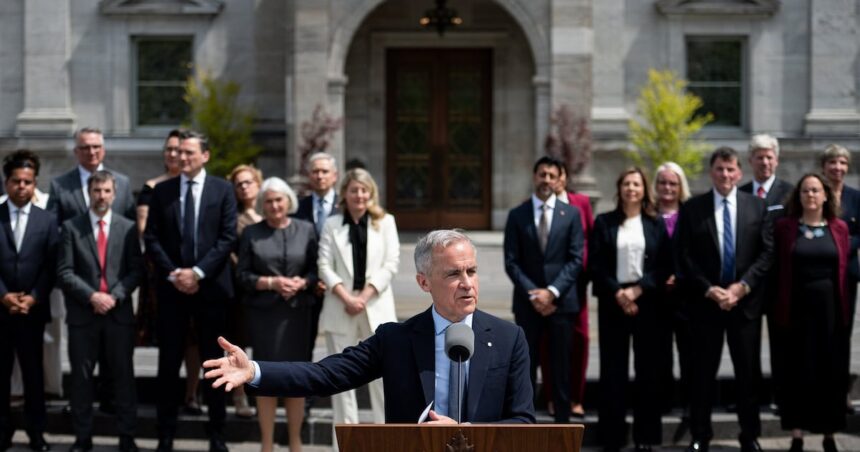In a revealing turn of events that has Ottawa’s political circles buzzing, multiple Liberal insiders have confirmed that Mark Carney’s emerging leadership style promises to reshape the federal government with distinctly corporate sensibilities. The former Bank of Canada and Bank of England governor, who formally entered Canadian politics last month, is already making waves with his methodical approach to policy and governance.
“What we’re seeing is a fundamental shift in operational philosophy,” explained Toronto MP Yasir Naqvi during an exclusive interview at his constituency office. “Mark brings a level of structural discipline that comes from his years navigating complex financial institutions. His approach isn’t about dismantling what works, but rather implementing systems that deliver measurable outcomes.”
This corporate-influenced governance model represents a significant departure from Prime Minister Justin Trudeau’s more relationship-focused leadership. While Trudeau built his administration on personal connections and emotional intelligence, Carney appears poised to emphasize efficiency metrics, accountability frameworks, and data-driven decision making.
Financial markets have responded positively to Carney’s emergence, with the Canadian dollar strengthening 0.7% against major currencies since his official announcement. Investment analysts from major banks point to his reputation for fiscal responsibility and pragmatic problem-solving as key factors driving this confidence.
“The markets respond to certainty and competence,” notes Maria Henderson, chief economist at Canadian Imperial Bank of Commerce. “Carney’s track record managing monetary policy through turbulent periods signals his capacity to navigate complex economic challenges with steady hands.”
Political strategists suggest Carney’s approach may help address public frustration with government inefficiency. A recent Angus Reid poll showed 68% of Canadians believe federal programs suffer from “bureaucratic bloat” and lack clear performance indicators – precisely the issues a corporate governance model might target.
However, critics within progressive circles express concern that corporate efficiency sometimes comes at the cost of compassion. “Government isn’t a business,” cautions political science professor Elena Robertson from Queen’s University. “Its primary function isn’t profit maximization but rather serving citizens equitably, particularly those most vulnerable.”
Party insiders acknowledge the leadership transition will require delicate balancing. Liberal MP Julie Dzerowicz from Davenport emphasized the importance of maintaining core values while embracing new methodologies: “Our progressive principles remain unchanged. What’s evolving is how we deliver on those commitments with greater precision and accountability.”
As Liberal convention planning committees prepare for next year’s gathering, policy documents circulating among senior officials reveal increased attention to performance metrics, cost-benefit analyses, and implementation timelines – hallmarks of Carney’s corporate approach taking root.
With federal elections approaching in 2025, the question remains whether Canadian voters will embrace this blend of progressive values and corporate efficiency. Can Carney’s methodical leadership style effectively address complex social challenges while maintaining the human connection essential to democratic governance?
For more coverage on Canadian political developments, visit our Canada News and Politics sections.










